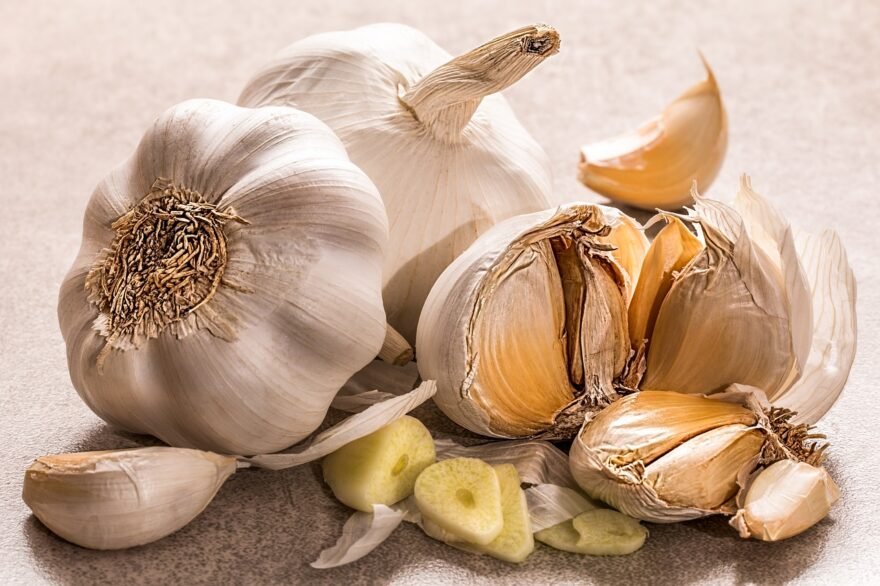Garlic is a bulbous herb vegetable. The scientific name is Allium sativum and is most commonly known as (Lahsun) in Hindi, ‘Vellulli’ in Telugu, ‘Poondu’ in Tamil, ‘Veluthulli’ in Malayalam, ‘Bellulli’ in Kannada, ‘Rasoon’ in Bengali, ‘Lasun’ in Marathi, ‘Lassan’ in Punjabi and ‘Lasan’ in Gujarati, It is generally the edible bulb part of the lily plant and belongs to the Allium family.
Nutritionist Avni Kaul says the average height and the diameter of a garlic bulb is approximately 2 inches and contains several cloves and both the cloves and bulb are enclosed in a paper-like sheath, which has a white, off-white, purple or pink hue. The cloves of garlic are firm and are covered in a thicker paper-like sheath of the same color as the external sheath.
Garlic can actually ward off several health problems, including cancer, and there, are several health benefits of garlic in the past, that have scientific evidence.
In this article, Delhi based Nutritionist and Dietician Avni Kaul talks about the surprising benefits of garlic for your health.
Stabilizes Blood Pressure
Garlic extract includes a bioactive sulfur compound, S-Allyl cysteine, which has been found to greatly lower blood pressure by 10 mmHg (systolic pressure) and 8 mmHg (diastolic pressure). Sulfur deficiency is one of the factors for high blood pressure and therefore supplementing the body with organosulfur compounds can assist in stabilizing blood pressure.
Prevents Cardiovascular Disease
Garlic can help avert almost all cardiovascular diseases. It helps to prevent cardiovascular diseases by reducing bad cholesterol, lipid, and serum triglyceride increase antioxidant activities, and reduce platelet aggregation. Garlic is also effective against atherosclerosis.
Improves Bone Health
Age and unhealthy lifestyle often make your bones weak, that means fractures and osteoporosis will set in much earlier. Garlic has been known to be effective against osteoporosis and arthritis garlic oil is able to suppress ovariectomy-induced bone resorption.
Regulates Blood Sugar
High blood sugar can make one prone to developing diabetes, high blood pressure, and obesity. If you are suffering from high blood sugar, you should include garlic in your diet. Raw and boiled garlic can significantly reduce blood glucose levels. Therefore, eat raw garlic instead of the cooked bulb to help lower blood sugar levels.
Improves Immune System
Garlic has phytonutrients that are antioxidant in nature. Antioxidants flush out toxins and lower oxidative stress in the body, which prevents you from falling sick or being prone to DNA mutations and disrupted cell functions.
Reduces Yeast Infection
Yeast infections can be both annoying and distressing. Garlic is a natural remedy for yeast infections. Fresh garlic extract is hugely effective against Candida infections.
Good Against Common Cold
Garlic has been used since ancient times to treat the common cold. A special mustard garlic oil is applied near the nose and on the throat and lung area to help treat chest congestion. Garlic can also, delay the hypersensitivity linked with asthma and also help treat the common cold.
Improves Iron And Zinc Absorption
Both iron and zinc are vital for the proper functioning of several biological processes. Garlic contains sulphur that positively impacts the bioavailability of both iron and zinc. Thus, if you are iron or zinc-deficient, you should include garlic in your diet.
Please Note:
1. Asthma patients must not consume garlic as it may cause side effects.
2. Garlic should be avoided before surgeries or medical operations.
3. Do not eat more than 2 to 3 garlic cloves in a day without consulting your doctor.


